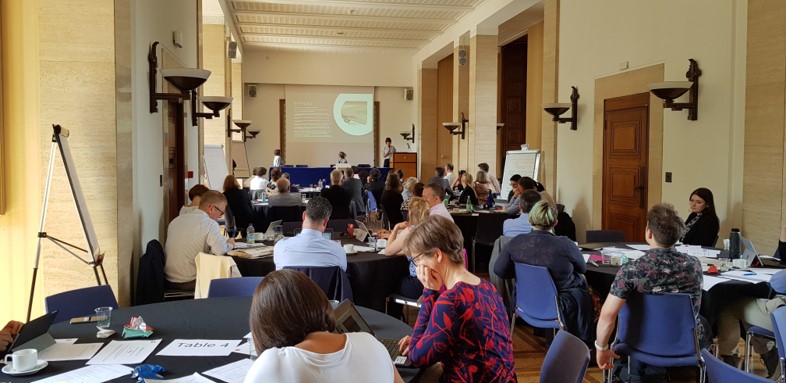So … I know we’re in the middle of a global pandemic; and the UK is in lockdown; and everyone has got a lot on their minds … BUT, we do need to press on with Plan M! If anyone hasn’t heard of it, or needs a reminder of what it is, feel free to take a look at this previous blog post.
Very briefly, the objective is to remodel the UK library bibliographic metadata marketplace to streamline the supply of – and the demand for – catalogue records. We want to design new agreements between suppliers and libraries that allow the latter to more freely share and reuse bibliographic data. Whilst we now have a fit-for-purpose piece of national infrastructure to facilitate that sharing (you can read about the National Bibliographic Knowledgebase in this blog post) we are still faced with the frustrating situation where data can be enhanced by one library but they aren’t allowed to share that work with other libraries because the original record is subject to licensing restrictions.

The Future of Metadata – Stakeholder Meeting – 22nd May 2019, Senate House, London
It may sound like a relatively simple thing to solve but if you try to map out the UK library data marketplace, you end up with complex stakeholder dependencies and some entities that simultaneously buy, sell and/or freely share data.
Underpinning all of this complexity are a number of economic questions. Good quality data that accurately describes books and other library materials in ways that make them highly discoverable for research and learning does not automatically happen as part of the commercial publication process. At some point, someone has to create some data which identifies and describes those materials. And someone has to pay for that to happen. Ideally, of course, if we act communally and get things organised, we should be able to design it so that UK academic and specialist libraries only pay once for good data. But we’re not there yet … not by a long way.
The good news is that we have been successful in commissioning an experienced and expert group of consultants to help with the next phase of work. Headed up by Research Consulting Ltd., they will be spending the next 6 months gathering as much data as possible to help inform a realistic set of proposals that we can then present to libraries and suppliers. Rob Johnson and his team will be reaching out to libraries, data suppliers, infrastructure providers and expert groups with a set of questions designed to try and form the best possible picture of how much it currently costs everyone to: create, supply, acquire, manage, enhance, protect, share, transfer, integrate, aggregate, process … [insert other verbs here!] … the data.
If we can get a handle on how much it all currently costs (and in the process identify where it really shouldn’t be costing as much as it does) … then we should be able to come up with a new model that costs less. That’s the theory.
But we are going to need your co-operation. Let me introduce you to the consultants who may be contacting you:
- Rob Johnson – Research Consulting Ltd
- Claire Walsh – Research Consulting Ltd.
- Tracey Clarke – Tracey Clarke Consulting
- Lorraine Estelle – Information Power Ltd.
- Alicia Wise – Information Power Ltd.
We’d be really grateful if you could work with them to share as much information as you can about costs, workflows, benefits etc. The more knowledge and insight that you can provide over this next phase of work, the easier it becomes for us to design a new model that benefits everyone.
I can confidently predict that you will be invited to participate in more Zoom meetings very soon.
Take care and stay safe.


One reply on “Moving Plan M Forwards – We Need Your Help!”
Hi Neil,
Thanks for this post. Plan M resonates with Law 4 of my recently formulated Edmunds’ Five (New) Laws of (Digital) Library Science:
1) The value of metadata is greatest in the silo for which it was originally intended.
2) Bibliographic metadata no longer drives discovery; megadata does.
3) There are only two kinds of URLs: URLs that are broken, and URLs that will be broken.
4) Libraries no longer control the creation, distribution, or management of bibliographic metadata; for-profit entities do.
5) The Bibliographic Universe is dead; we now live in a Quantum Data Multiverse.
I’m in the US rather than the UK, but I will be watching very closely the outcomes of Plan M.
Best wishes,
Jeff Edmunds